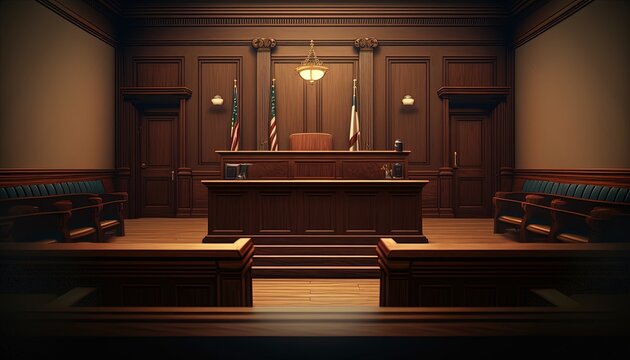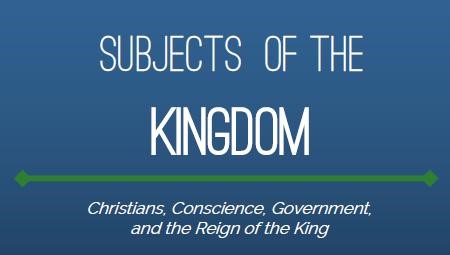The mechanisms of human government are many. In another way of thinking, government is all one, huge mechanism. To date, I have only been involved in a small bit of it directly. For example:
- representing employers in a few, minor court hearings
- taking part in a divorce hearing
I vaguely recall serving on a community association board back in the 90s. I wanted to get involved in the neighborhood. Incidentally, I wouldn’t now consider that neighborhood a community per se, but I suppose it was more so than the many affiliations and loosely defined, geographically spread-out groups that are called “communities” today.
Often, school board roles are used as a stepping stone to city and county political runs. If that weren’t the case, and if there were fewer national and state mechanisms at work through the local school board, I might consider running for the school board in my locality. (This thought is pointless: I’m not a schmoozer in any other, smaller mechanism and am not known well enough as a public figure to win a spot.)

Last month, I returned home after a vacation to find a draft notice to serve on a county court’s jury. This came as quite a surprise, since I’ve never been asked before. I had been under the assumption that voter records constitute the database for jury service. (I’m not a registered voter.) There are apparently multiple databases, at least in this jurisdiction, and I must have been chosen based on driver license records. I misjudged the mechanism of the selection process and found myself blindsided when I had to complete a response form. I stressed over it, and it took me about three days to fashion a half-page written response.
There are multiple issues with my serving as a juror. Some are practical, some are philosophical, and one is quite low-level, although not to be passed over lightly: dislike of one of the two possible judges in this court.
For the practical part: there is always work, which in my case doesn’t present an insurmountable issue for my employer or myself. In my case, there is an additional parenting commitment that only I am able to help with.
Then there’s the philosophical part, which is the most weighty for me. I generally distrust large institutions and their mechanisms; inasmuch as the jury and court and judge are part of the government, I naturally look askance at them. Although I’m sure “justice is served” often, I find good reason not to believe deeply in the legal process. Consider the meaninglessness of the length of a sentence, for instance, and the very notion of plea bargains. It’s quite a mixed bag of justice, injustice, and silliness of legalese, posturing, and legal wrangling.
There is also the sense that, as a juror, I will be a functioning part of the overall government mechanism, and I don’t like that. The jury, as I presently see it, exists in that hazy area between (1) peaceful society and (2) governmental decision-making. What contributes to peaceful society? Such things as courtesy, lack of harmful practice, and responsible living. Those things seem easily harmonized with Christianity. But the decision-making side is problematic. I don’t think a Christian serves best by functioning as an “executive” arm of the government. If we take Romans 13 as our code book,¹ human government is, more or less, in place by the will of God, but the existence of the mechanism doesn’t imply adherence to God. Far from it, really. The government is one thing in Romans 13, and the Christian is another. The government might reflect certain principles also associated with the people of God, but it functions in its own sphere. There is one primary allegiance, and there will naturally be conflicts between God’s kingdom and civil government.
The functional mechanics of this particular court might or might not be like other district courts. I have nothing to which to compare it, but the process seems to involve a bit of historical ego. By that I mean it thinks too highly of itself at the expense of everything else. I have been asked to serve for all or part of six weeks, making a small fraction of my regular paycheck, although I’m granted only two weeks off paid time off for jury duty. I’m to be on call, without the benefit of a certain schedule, and without the ability to follow through on a commitment I made months ago for my son. The mechanics of how this works simply aren’t very considerate to the citizens who are being asked to serve—and threatened with contempt of court if they don’t. Here, of course, I think of the conscientious objection route and wonder what precedent there might be for those who would object to jury service to the point of not showing up for “active duty.”
Given the demographics in this area, which include hundreds of college faculty and staff, a few professionals in medicine and law, etc., and a whole caboodle of relatively uneducated people, it could be difficult to assemble a “jury of one’s peers.” In this small-town, rural, poor area, I might assume that most trials have something to do with illegal, hickish gun use, or with illegal drugs such as meth. If I’m correct, I wouldn’t be much of a “peer” on this jury. On the flip side, if it’s more of an uncommon, even white-collar sort of criminal, the jury of “peers” could end up being substantially less edumacated. I suppose it’s up to defense counsel to accept or reject a juror who wouldn’t understand his client’s point of view. In any event, if I’m actually in a juror scenario, my theologies and writings and general predispositions will likely lead me to think differently from the other jurors, and that in itself could slow down the jury mechanism.
Below is the lion’s share of my addendum to the “Duty to Respond” questionnaire:
. . . I have never served on a jury and am struggling with this response for multiple reasons.
First, at present, I find in Atchison a rather dismal scene in terms of personal morals and ethics, crime, poverty, public education, mental health, the occult, and more. I am generally averse to the legal process, and I sometimes find laws to be flawed. My strong perceptions of serious governmental errors (on both local and national levels) during recent years leave me feeling hypercritical, yet I would like to think that I could still add a principled, unbiased opinion to a jury.
Second, I am a conscientious non-participant in the processes of human government (and a Conscientious Objector to military service). I have written extensively— including a full-length book—on the Christian and human government. Over the course of 40+ years, I have developed views that I now hold deeply, but I continue to consider how I might be a good influence in society. My primary allegiance will be to God and what is right; I think it is possible that these values could harmonize with being a juror.
. . .
Thank you for your consideration.
The response I received from a court clerk was courteous and nicely explanatory, but it indicated the judge had elected not to grant my request to be excused at this time. I would be given another opportunity to explain at a trial, so the judge and lawyers could reconsider then. Because of personal knowledge of one judge, I had carefully worded my response so that it wouldn’t come across like an excuse. I expressed reservations and questions but also a compliant willingness, or at least that’s what I attempted to convey. What I’d hoped was that the judge would see my deep feelings and not want to mess with me. That was not the case.
. . .
I wrote the above during the two days before my first trial (as a juror!) could have begun. I’m thrilled to say that the prayer my son and I prayed seems to have been answered in the positive. As I edited this post, the time came that I could call in and check. This trial was canceled, so I can keep my commitment to him this Friday. Furthermore, as I was writing this paragraph, a lively piece of music was playing on a free music channel. I didn’t know the music, but it seemed to be a sort of double concerto for Spanish guitar, accordion, and full orchestra. This music added brilliance and an additional hint of celebration to my mood!
I’ve been trying to move through the weight of this jury thing with prayer and without too much anxiety. I don’t want to be in a position of choosing conscience vs. law—or the court system over my son, for that matter!—and I’ve been working on not giving in to unnecessary fear. And still I watched the clock until the moment I could first call the hotline. There will be two or more other trials to which I could be subjected in the coming weeks, but, for now, I’m free.
I now commit this to be posted in three days, fully realizing that I’ve been overwrought about it, and that has led to my being quite a bit more verbose than usual!
¹ I do not take Romans 13 (or any other passage) that way, or at least I try not to do so. Although Romans is arguably more of a treatise than a letter, it’s still situational, to an extent. On the other hand, principles may be gleaned from the apostolic writings. For sake of discussion here, Romans 13:1-7 does present something of a “case,” so I appealed to it. For a little more on that chapter, see here:
The 13s and government

 partisan concerns, in the last few years. The underlying principles by which both journalism and government operate have been overtaken. The notions of “real change” and “by the people, for the people” are no longer viable. The wasted efforts and silliness mount up like many supposedly protective measures during the pandemic. The prevalence of ostrich-like politicians in the Great Sand Dunes of the country’s landscape is mind-numbing.
partisan concerns, in the last few years. The underlying principles by which both journalism and government operate have been overtaken. The notions of “real change” and “by the people, for the people” are no longer viable. The wasted efforts and silliness mount up like many supposedly protective measures during the pandemic. The prevalence of ostrich-like politicians in the Great Sand Dunes of the country’s landscape is mind-numbing.